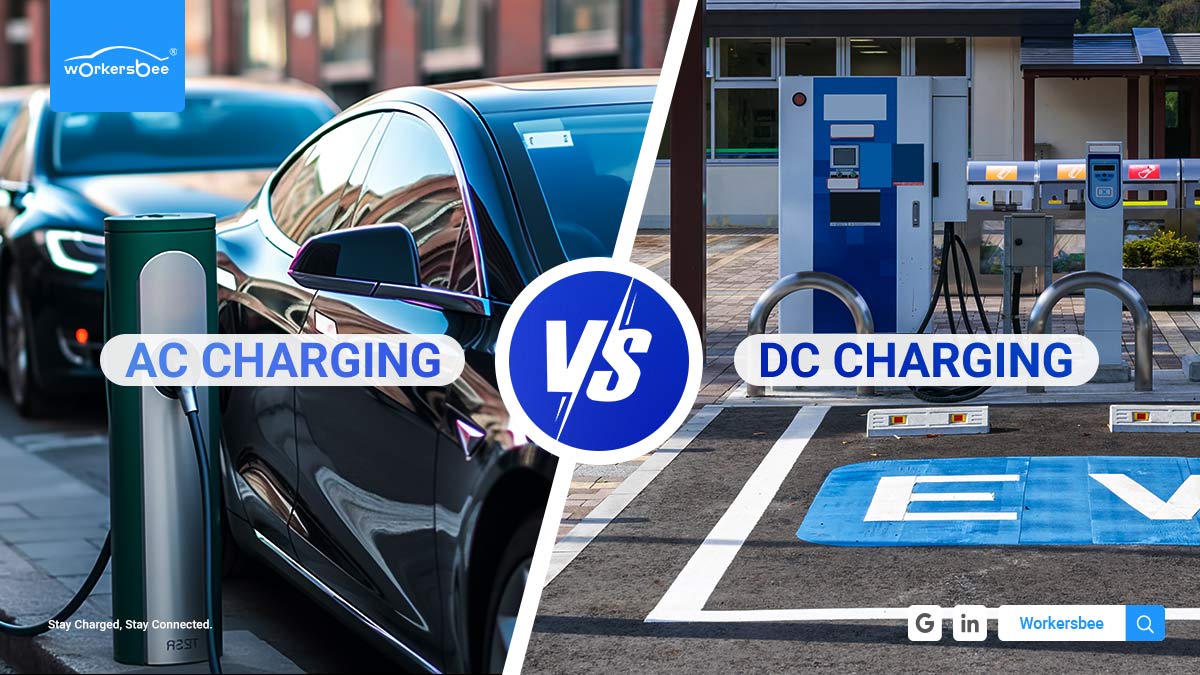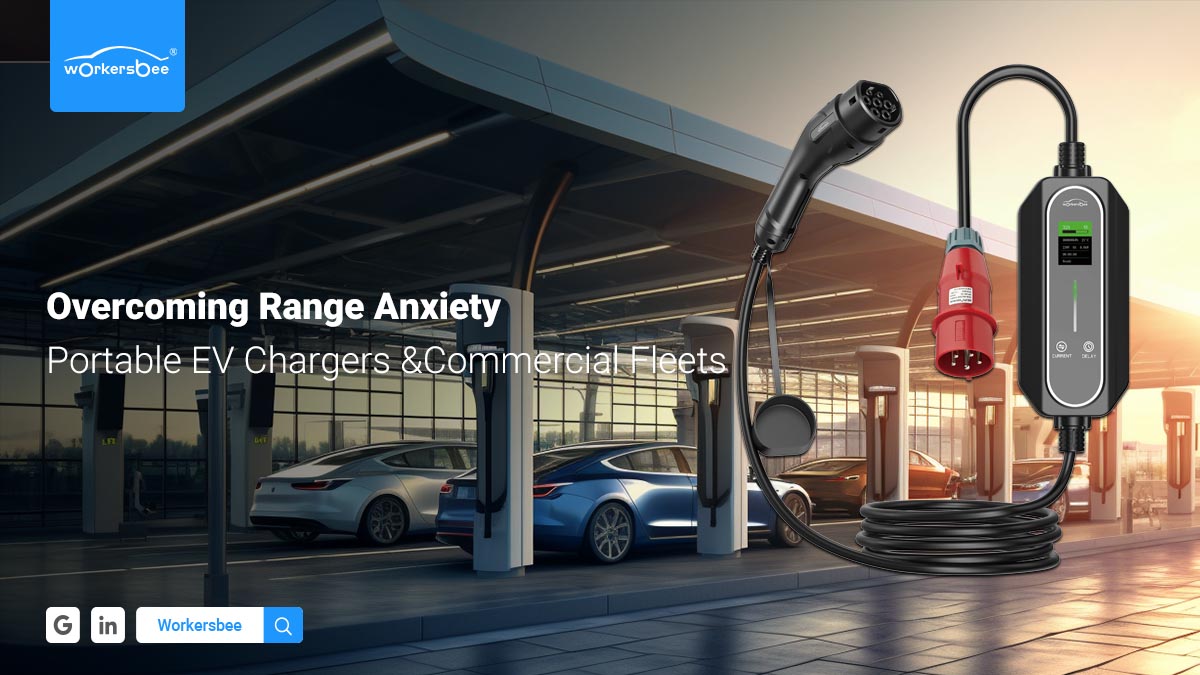 Unlocking the Future of EV Charging: A Comprehensive Guide to AC and DC Charging Solutions
Unlocking the Future of EV Charging: A Comprehensive Guide to AC and DC Charging Solutions
Sep 10, 2024
The market penetration of electric vehicles has grown so significantly that it can no longer be ignored, accompanied by a huge demand for charging. What troubles the electric vehicle charging industry is not a lack of market, but rather the lack of reliability, complex charging experiences, and unsatisfactory return on investment.
To gain more control in the market, we need to start with Electric vehicle infrastructure. AC charging and DC charging are absolutely mainstream. A thorough understanding of their pros and cons and value realization can help us plan and configure the charging network more strategically and embrace electric vehicles more proactively.
First, let's briefly understand the basic concepts of AC and DC charging.
AC Charging uses an alternating current power source to charge an electric vehicle's battery. The AC from the grid is converted to DC by the vehicle’s onboard charger and stored in the battery. This setup means that the efficiency of AC charging is limited not only by the charger but also by the onboard charger(OBC).
Therefore, AC charging is generally slower. Although some AC chargers are known as "Rapid Charging," they are not in the same league as DC Fast Charging. These faster AC chargers are usually referred to as Level 2 Chargers, while the lower ones are called Level 1 Chargers.
While the Charging Speed of AC charging is slower, the equipment costs are lower, they are easier to install, and the requirements for the surrounding environment and the grid are relatively low. They require minimal electrical upgrades and are easier to maintain and operate. For drivers, the charging cost is also lower. Therefore, AC chargers are well-suited for places where cars are parked for extended periods (more than an hour), such as homes, workplaces, public parking lots, or roadside parking. Since charging usually takes several hours, it is not suitable for long-distance travelers in a hurry.
Common power include 3.5kW, 7kW, 11kW, and 22kW. Some products now offer higher power, but they come with higher costs and electrical requirements.
As a renowned china charging plug manufacturer, Workersbee's AC charging products have always been popular. This includes charging connectors, charging cables, charging sockets, and portable EV chargers.
In particular, portable EV chargers come in a diverse range of products, including those with screens and without, single-phase and three-phase charging products. These products have been extensively validated in the market over the years, boasting very stable reliability, over 99.9% compatibility, user-friendly smart charging management, and outstanding outlook designs. The impressive market performance further confirms their high performance, high standards, and high reliability.
DC Charging uses a High-power charger (HPC) to draw alternating current (AC) from the grid, which is then converted into direct current (DC) by internal inverters and supplied to the EV's battery. Because the power modules handle substantial amounts of energy, DC chargers are typically larger and have higher procurement, installation, and maintenance costs, with greater electrical requirements.
Since DC power can directly supply large amounts of energy to the EV battery, reducing energy conversion losses within the vehicle, DC charging is highly efficient and fast, significantly reducing charging time.
These features make DC charging ideal for public charging stations where vehicles have short stays and for highway corridors for long-distance travel, where there is ample space and convenient electrical distribution. Drivers need not worry about long charging times; a quick restroom break or a cup of coffee is usually enough to provide sufficient charge for their journey.
But why doesn’t everyone always prefer fast charging? The charging cost is higher.
For charging station operators, the initial investment is substantial, including equipment, electrical upgrades, and site development, along with high ongoing maintenance costs, all of which are passed on to the drivers.
Additionally, frequent use of fast charging may potentially degrade the vehicle’s battery life time. Furthermore, some vehicles might not support fast charging despite the desire for high efficiency.
Consumers still look forward to safe and stable high-power fast charging in the future. Workersbee's STAR product, the CCS2 liquid-cooled charging plug, has achieved a peak current of up to 700A, while the CCS2 naturally cooled plug offers a continuous current output of 375A. Both products are CE certified, ensuring safety and reliability, with advanced cooling technology guaranteeing high performance and stable operation.
What Can Workersbee Offer Your Business?
1.Comprehensive AC/DC Charging Solutions: Our diverse product lineup includes AC charging solutions for residential and workplace settings, and DC charging solutions for public locations. We cater to your business's custom needs, ensuring equipment remains in optimal condition.
2.Portable AC Charging Solutions: Our EV charging cables and portable EV chargers are lightweight, making it convenient for users to charge anytime. They are designed for excellent compatibility and durability.
3.Reliable High-Power DC Charging Solutions: Our high-performance liquid cooling and natural cooling technologies ensure the safe and stable operation of equipment, enabling fast charging.
4.Cutting-Edge Technology: Our R&D team stays abreast of industry trends and technological developments, applying advanced technologies such as liquid-cooled ultra-fast charging, quick-change terminals, and ultrasonic welding.
5.Reduced Investment Costs: By adopting automated production and modular design, we ensure efficient product manufacturing and ease of maintenance, thus reducing costs from both procurement and operational perspectives.
6.High Standard International Certifications: Our products have passed CE, TUV, UKCA, UL, RoHS, and other certifications, earning trust and recognition from users worldwide.
7.Global Sales and Localized Service: Workersbee charging plugs are sold in many regions and countries globally. We offer localized services in different areas, ensuring your business receives timely, professional after-sales service and technical support.
Conclusion
In the era of electrified transportation, Electric Vehicle Charging is becoming increasingly important. AC charging and DC charging each have their own advantages.
For consumers, understanding the differences between the two can help them choose the most suitable charging method based on their specific needs. For charging facility suppliers and operators, a deep understanding of these advantages and disadvantages can help optimize the configuration and layout of chargers, improving the efficiency of the charging network and driver satisfaction.
Workersbee believes that we can offer your business more practical and efficient solutions. We remain committed to focusing on user needs, continuously innovating and optimizing our products, and providing robust support for your business.
Read More

 Overcoming Range Anxiety: The Benefits of Portable EV Chargers for Commercial Fleets
Overcoming Range Anxiety: The Benefits of Portable EV Chargers for Commercial Fleets
 Unlocking the Future of EV Charging: A Comprehensive Guide to AC and DC Charging Solutions
Unlocking the Future of EV Charging: A Comprehensive Guide to AC and DC Charging Solutions